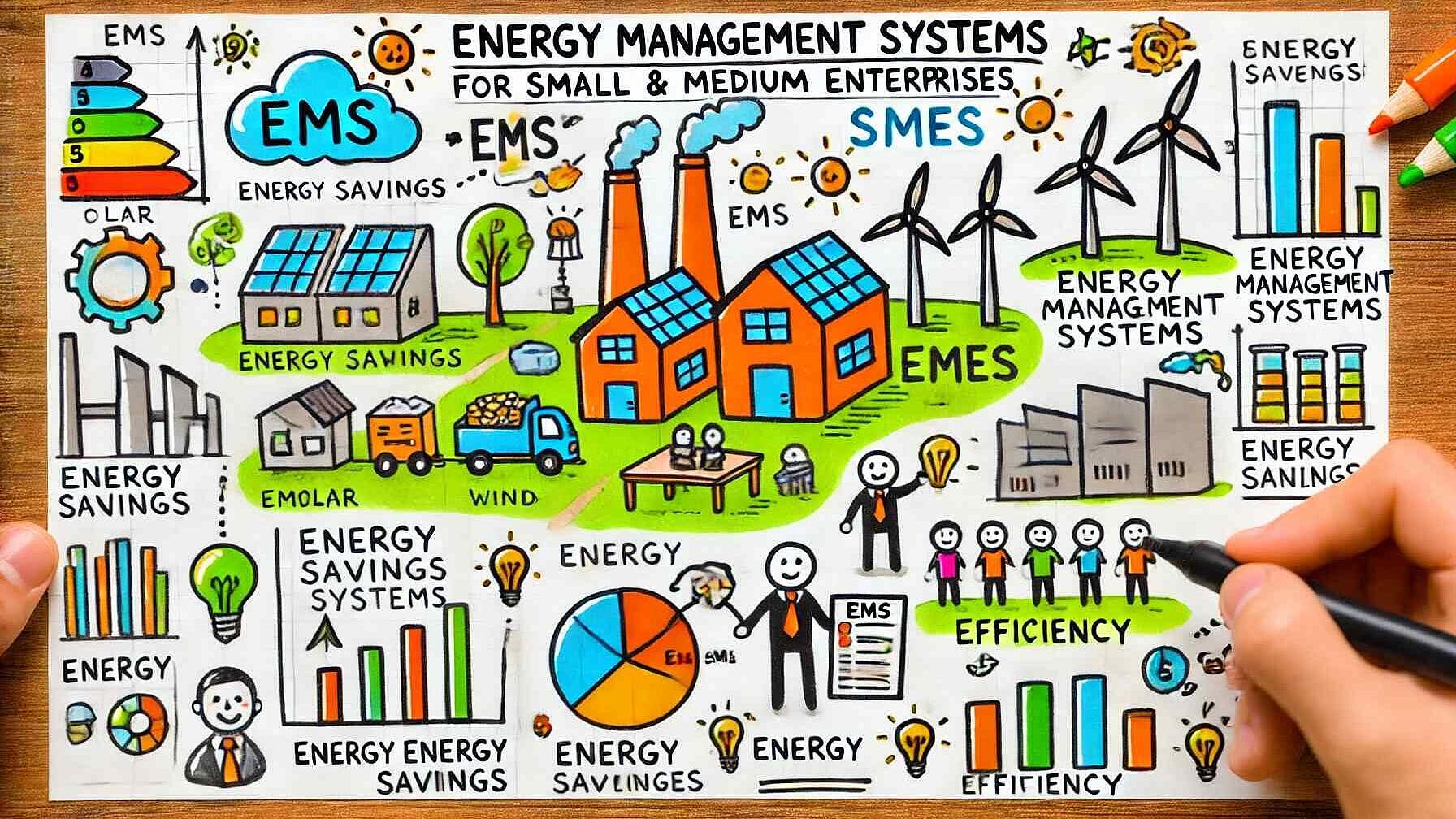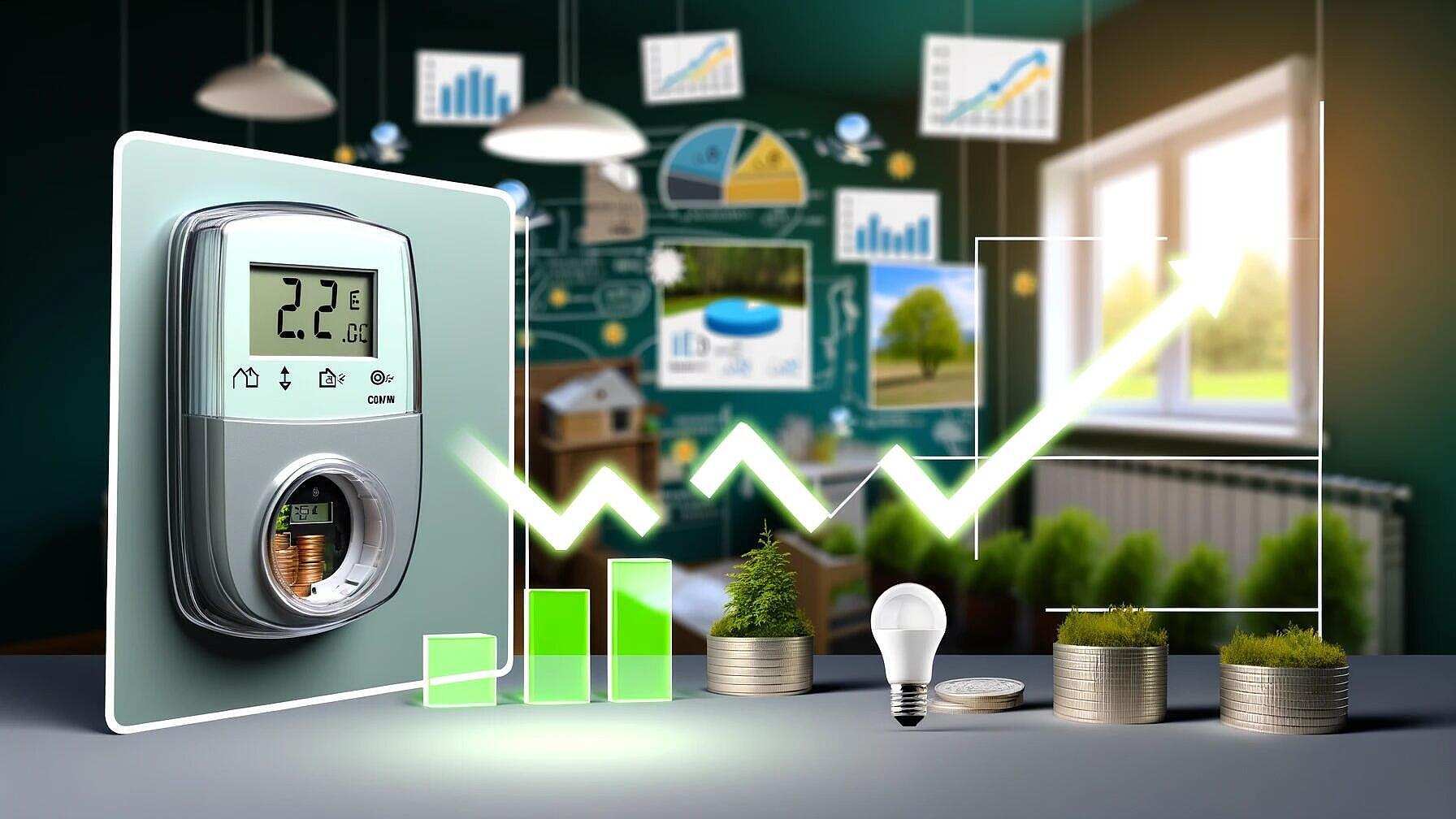 Finance & Economics
Finance & EconomicsFinance & Economics
Small and medium-sized enterprises (SMEs) can achieve substantial energy savings, with studies indicating potential annual reductions of 10-30% by implementing comprehensive energy management systems (EMS). However, a 2021 survey found only 16% of SMEs utilize an EMS, with barriers such as perceived costs, resource constraints, bureaucracy concerns, and lack of management commitment hindering adoption. Energy management offers strategic benefits such as decreased costs, enhanced productivity, improved compliance with environmental regulations, and a boosted reputation. Technological advances, including smart meters and IoT sensors, now enable real-time energy monitoring and optimized processes, making sophisticated energy management feasible for SMEs without large teams. Best practices for adopting an EMS include conducting energy audits, setting achievable goals, engaging all employees in initiatives, and regularly reviewing data to refine strategies. SMEs are integral to the clean energy transition, contributing to carbon emission reductions and stimulating innovation. The European Commission acknowledges SMEs' role in recovery and sustainable progress, highlighting the importance of providing them with necessary support. Future trends in energy management for SMEs include increased use of renewables, energy storage, energy-as-a-service models, artificial intelligence, and adherence to circular economy concepts. Effective energy management practices can lead SMEs to greater financial, operational, and environmental prosperity, positioning them ahead in a more energy-conscious business landscape.
Leer Artigo completoAnalysis of the Front National 2024 Program and Its Potential Impact on Financing the Energy Transition
The Rassemblement National's 2024 program prioritizes nationalistic policies, with an emphasis on nuclear power, potentially hindering renewable energy development. The program's focus on traditional energy sources may lead to regulatory changes, affecting investor confidence and France's alignment with EU goals. This could result in tensions with the EU, reduced funding, and a slowed energy transition.
Leer Artigo completoThe Economic Impact of AI on Energy Transition: Financial Institutions at the Forefront of a Green Revolution
AI accelerates the global energy transition by optimizing grid operation, predictive maintenance, and energy efficiency, advancing R&D, and enhancing energy trading strategies, attracting investment and job creation, with associated financial opportunities and risks.
Leer Artigo completoThe RetroMeter project: using metered energy savings to make energy efficiency more investable
This article discusses institutional investors' perspective on energy efficiency and how metered efficiency could spur investment. It addresses financial institutions' growing interest in energy efficiency due to market potential, risk mitigation, carbon emission reduction, and regulatory pressure. Barriers like small project scale, heterogeneity, data scarcity, and performance risk inhibit investment. The concept of metered efficiency, akin to Power Purchase Agreements, is presented as a solution to align payment with actual energy savings, enhancing investability and quality assurance in energy efficiency projects.
Leer Artigo completoAn overview of the ESCO industry
We need to triple global energy efficiency investment to meet COP28 goals. ESCO contracts can bridge the development gap by managing both technical and financial risks, fostering demand, and increasing financing capacity. Innovations like Super ESCOs, CaaS, LaaS, and standardized contract forms like EPCs can accelerate growth, but require policymakers, professionals, and financiers to align efforts for broad market scaling.
Leer Artigo completoEmpowering Small and Medium-sized Enterprises (SMEs) in the Energy Transition: The DEESME Project
The DEESME project, under EU's Horizon 2020, aids SMEs in energy efficiency endeavours, countering technical, financial, and awareness barriers. It provides a multi-layered approach to align SMEs with EU goals, offering policy recommendations and strategies to effectively implement Article 11 of the Energy Efficiency Directive.
Leer Artigo completoInnovative financial solutions to fight energy poverty
How social housing associations and EU projects are using innovative financial and solidarity mechanisms to combat energy poverty, emphasizing the dual benefit of social welfare and environmental sustainability through the refurbishment of buildings for energy efficiency.
Leer Artigo completoStimulating Consumer Demand for Energy Efficiency Investments
The Energy Efficiency Financial Institutions Group (EEFIG) will soon publish its final report from an expert working group on accelerating consumer demand.
Leer Artigo completoTransforming Europe’s Social Housing: Survey on Energy Efficient Refurbishment Strategies
SUPER-i survey is an online survey aimed at collecting insights on the current state of the energy-efficient refurbishment of social housing stocks in Europe. Results will identify areas for improvement, enable benchmarking of energy efficiency performance, and inform decision-making processes at various levels.
Leer Artigo completoRiding the Green Wave: The Meteoric Rise of Sustainability-Linked Bonds
The market for sustainability-linked bonds hit the $100 billion mark in 2021. This growth rate is significantly faster than that of green bonds, which took almost six years to reach the same market size.
Leer Artigo completo








